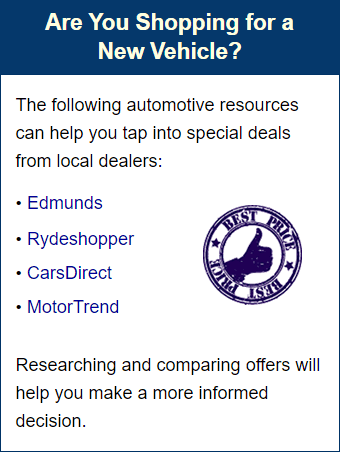How to Research Used Cars Online

With all the high-pressure sales tactics employed in the car industry, you can easily become trapped due to your lack of knowledge and bargaining power.
Many online websites provide the public with insider information on the automobile industry. Among the reputable sites are Edmunds.com , CarsDirect.com and AutoTrader.com. A visit to these websites involves some degree of work, especially for used cars due to the unique criteria each vehicle has in terms of equipment, condition, mileage, engine, and model year.
These guides can easily provide you with both the trade-in value (wholesale price) and market value (retail price) of a used car so that an accurate offer can be confidently made to the dealer. Often, online guides provide photographs and much more information than one would find in a classified ad.
Research thoroughly and widely to avoid making decisions on impulse, and compare the information gathered online to local dealer site information and local used car publications for retail pricing.
Once you have located a vehicle that suits your needs and budget, there are several guidelines that should be followed. After test-driving the vehicle, it should have a thorough inspection by a mechanic independent of the dealership, and the model year should be checked out for any recalls or consumer concerns. The vehicle identification number (VIN) should be acquired and checked through online services such as "CarFax.com" to provide a description of prior ownership (private, rental, salvaged, etc), specifications, problems, and odometer readings. Answer all the important questions with regards to a used vehicle before even considering making an offer to the seller.
When the desired vehicle has been located, priced online, researched for history, and inspected mechanically, an offer should be made to the dealer. Typically, dealerships aim to purchase trade-ins at $2,000 below wholesale price (low blue book), so the future new owner of that vehicle can expect at least that amount of money to bargain with towards the final retail price. Simply offer five percent under the wholesale price directly to the sales manager and stay relatively firm from there. Do not deal with the salespeople.
If the vehicle is being sold privately, it is customary to offer the seller fifteen percent under wholesale price and negotiate from there. Remember that private sales generally do not involve reconditioning by the owner, and the car is sold "as is"; larger dealerships may offer a limited warranty or spend some money to fix a used car up and absorb the cost in overall sales volume.
Smaller dealers may not offer any upgrades, and must mark prices up higher than the their bigger competitors. The quality and reliability of information gathered online, combined with these guidelines, will give you the knowledge and power to bargain successfully in any used car negotiation.

